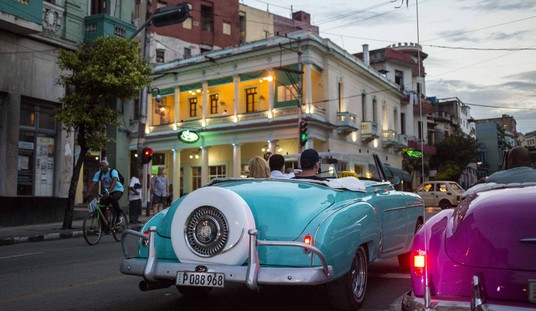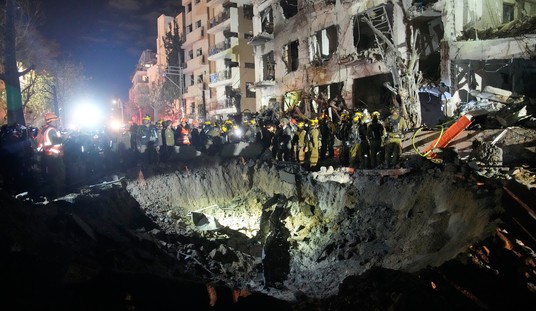At Northern Illinois University, they’re trying to right racial wrongs. Hence, the school will host monthly equity workshops this semester.
The school website explains:
The Faculty Academy on Cultural Competency and Equity (FACCE) initiative is an opportunity for all faculty and instructors at NIU to join an engaged community of fellow educators in learning and professional development. Participants will…hear from our NIU faculty experts on how to make their classrooms and pedagogy inclusive and accessible to all current and future Huskies.
Spring ’23’s first session — Resistance: Understanding and Rethinking Resistance for Equity in the Classroom, on January 27th — will work thusly:
[It] will explore the concept of resistance and the various manifestations of resistance that can arise in classrooms like, White guilt, White Fragility, and White Fatigue.
And according to April 28th’s Cultivating a Community of Care, it’s a war zone out there:
This workshop session will provide strategies and opportunities for discussion and practice around how we as academics can care for ourselves and each other while engaging in the important work of social justice, equity, and inclusion in the classroom.
The discussion will be “informed” by three theories:
- Culturally Responsive Teaching Strategies
- Culturally Responsive Teaching Strategies
- Racial Battle Fatigue
Racial Battle Fatigue was recently remarked upon via TheConversation.com by Alfred University Psychology Professor Geremy Grant:
It may come about from racial macroaggressions and racial microaggressions.
Racial macroaggressions are far-reaching race-related experiences that may be publicized and traumatic. For instance, when a video surfaced of George Floyd slowly being killed as a result of a police officer who knelt on his neck, experts say it traumatized many who saw the video. This experience is an example of how hearing about or observing experiences of racial prejudice and discrimination can add to the distress of people of color.
Racial microaggressions are defined as “brief and commonplace daily verbal, behavioral, or environmental indignities, whether intentional or unintentional, that communicate hostile, derogatory, or negative racial slights and insults toward people of color.”
Examples of “common racial microaggressions toward Black individuals” are asking someone, “Where are you from?” and saying, “I’m not racist. I have several Black friends.”
They also include asking a Black person, “Why are you so loud?” and confusing a Black professional for a service worker.
Students of color may experience racial microaggressions throughout their academic careers, beginning before college and persisting into college and university settings.
The resultant fatigue, Geremy says, causes anxiety and is “associated with an increased likelihood for developing symptoms of post-traumatic stress disorder.”
Chronic racial stress also increases the probability that a person of color won’t get good sleep. It is associated with a diminished sense of well-being, a loss of appetite and elevated blood pressure.
The professor’s solution:
[S]tudents of color can seek to form connections with other individuals of color to foster a sense of community, which may lessen feelings of isolation for people of color.
Will segregation fix America’s lack of unity? If so, we’re on the right track:
Major University Trains Its Students in Groups of White and Nonwhite
UCLA Students Stump for Segregation to Pummel ‘Pervasive’ Anti-Blackness
NYU Student Group Petitions for Black-Only Housing So They ‘Can Feel Included’
Ivy League School Offers Rock Climbing Class for Everyone But White Students
UNC Chapel Hill Art Club Welcomes All Students but White Ones
Back to Northern Illinois University, FACCE will “focus on access, equity, and inclusion” and “provide educators with the opportunity to explore” these topics:
- Culturally competent leadership skills
- Decolonization in the classroom
- Antiracism
- Queer and trans inclusion
- Navigating resistance
- And much more!
Antiracism, as you may know, isn’t merely the opposite of racism. Courtesy of Verywell Mind:
People often mistakenly believe that simply being “not racist” is enough to eliminate racial discrimination. The problem with this perspective is that White people are often unaware of their own unconscious biases. People often don’t fully understand the institutional and structural issues that uphold White supremacy and contribute to racist behaviors, attitudes, and policies.
Racial issues appear to be an increasing focus of education. That would seem to suggest problems are getting worse. But how could they be worsening if more institutions are fighting them? It must be quite the battle, indeed.
-ALEX
See more content from me:
Joe Rogan Compares George Soros to a Batman Villain — ‘He Funds Corrosion’
Music Awards Show Ditches Categories for Each Sex, Results in No Women Being Nominated
UNC Chapel Hill Art Club Welcomes All Students but White Ones
Find all my RedState work here.
Thank you for reading! Please sound off in the Comments section below.











Join the conversation as a VIP Member